Presented at the International Symposium on Children's Welfare and their Rights held by the Japanese Society of Child Science and
Child Research Net
Main Hall, Okayama Head Office of Benesse Corporation
October 14, 2013
The Welfare of children: Links and missing connections among science, conceptualization of rights and policy research
While there is evidence to support domains of the Rights of the Child, some of the rights as stated are not incorporating knowledge from the science of child development.
Gap between children's rights and scientific knowledge
- Family
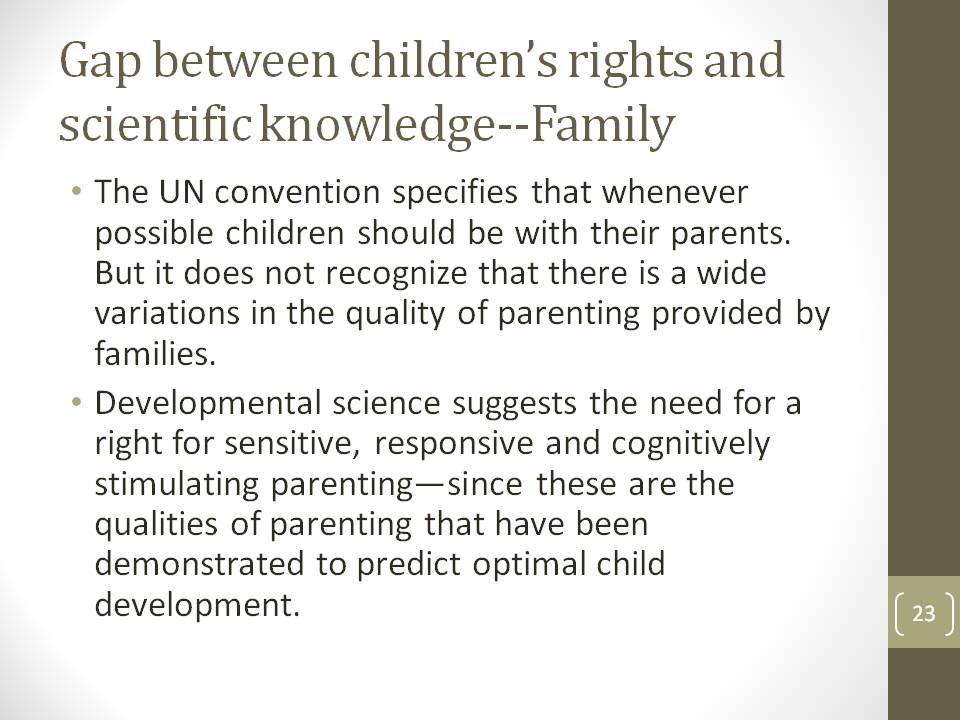 Enlarge
EnlargeGap between children's rights and scientific knowledge
- Education
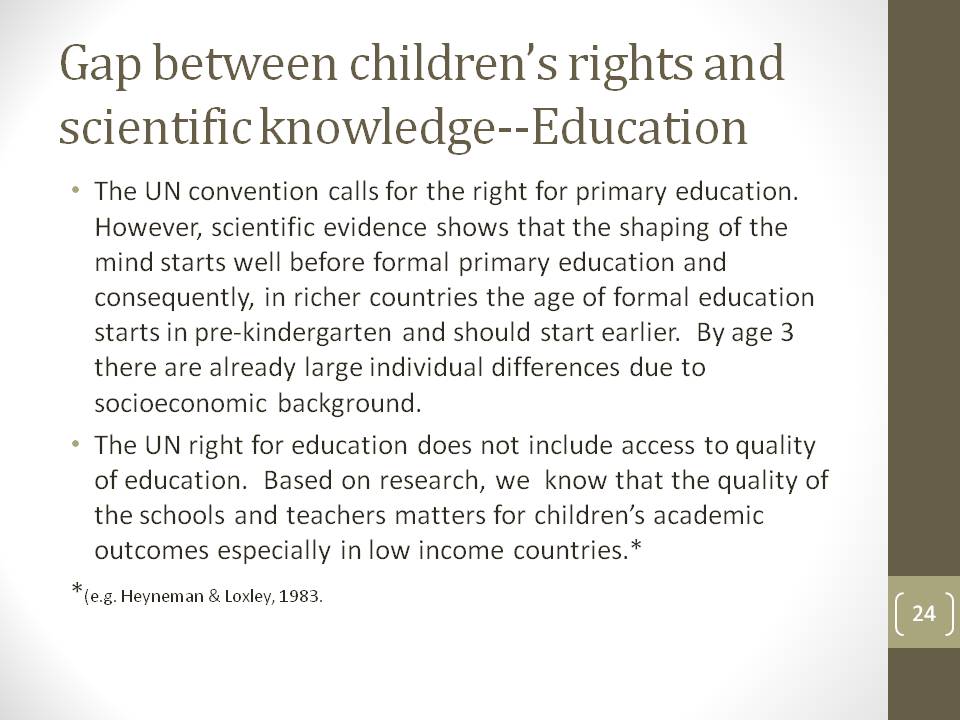 Enlarge
EnlargeHow can we close the gaps?
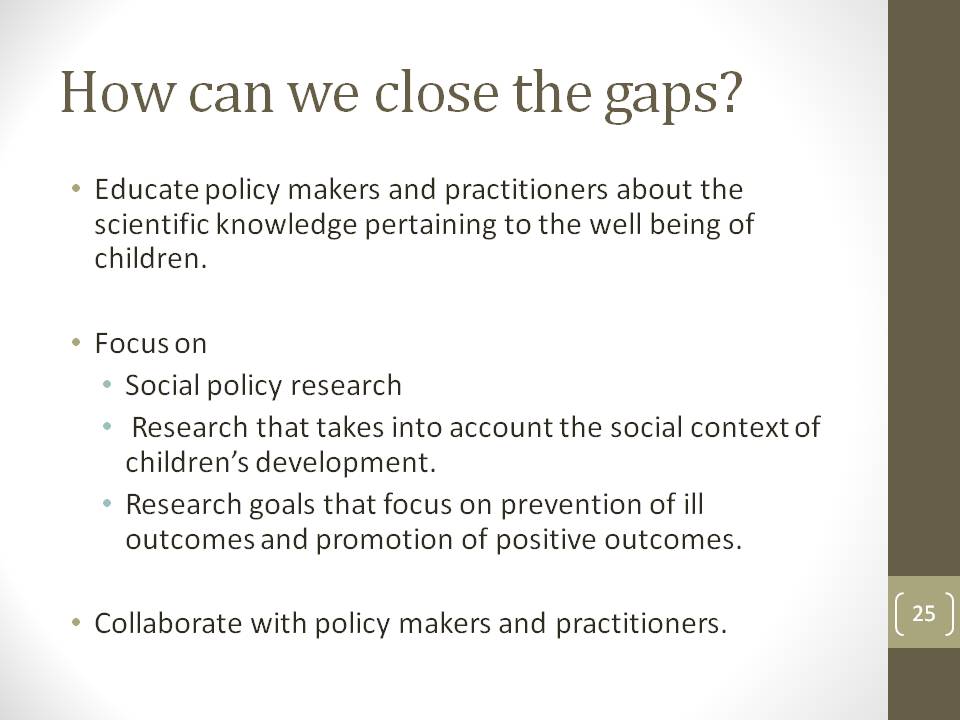 Enlarge
EnlargeIn the following several slides I will elaborate on the details of these ideas.
- Social Policy Research
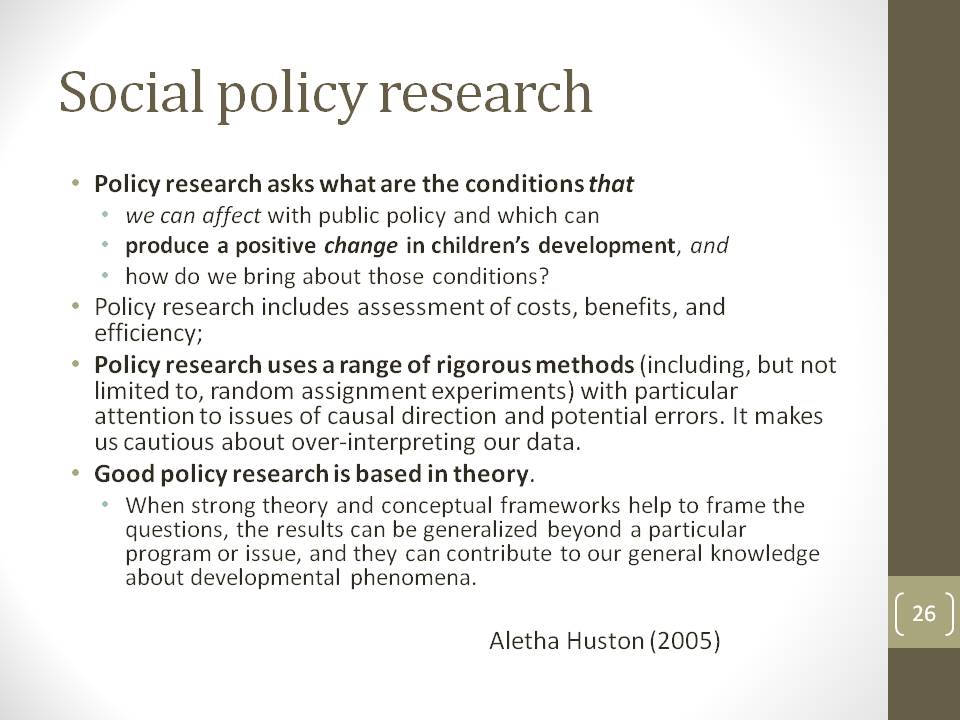 Enlarge
Enlarge- Policy research needs to consider context
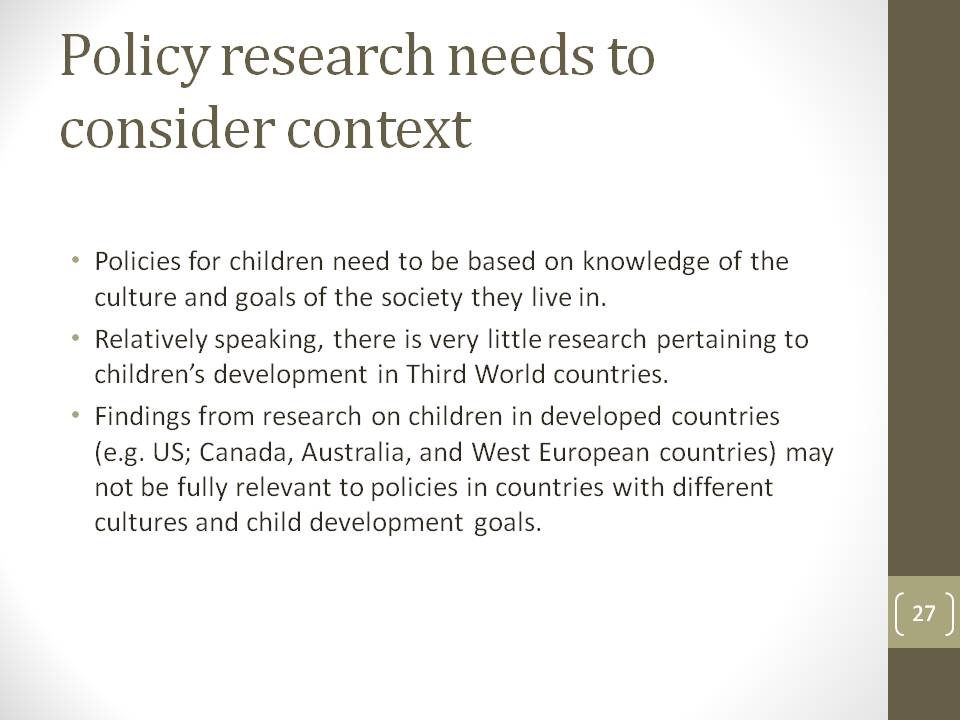 Enlarge
Enlarge- Preventing ill outcomes and promoting positive outcomes
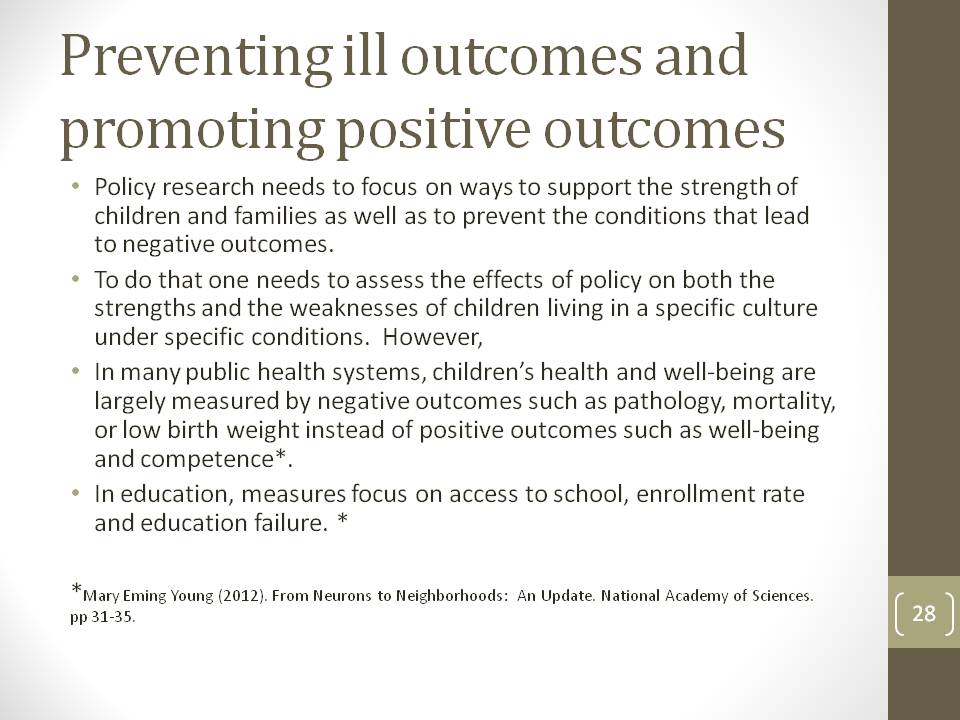 Enlarge
Enlarge- Collaborate with policy makers
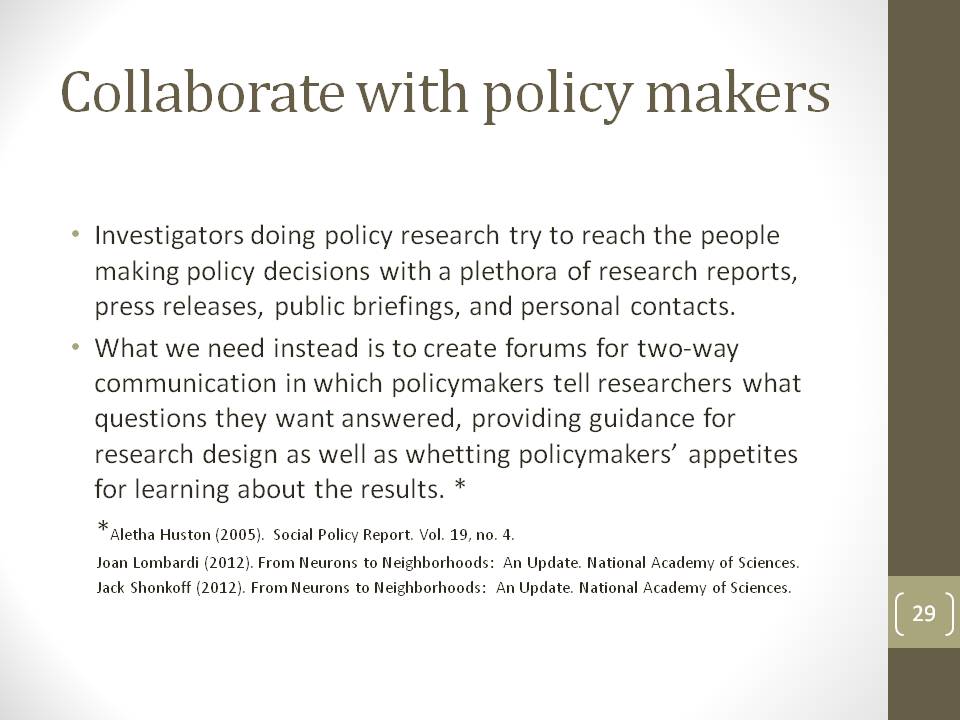 Enlarge
Enlarge- Collaborate with practitioners
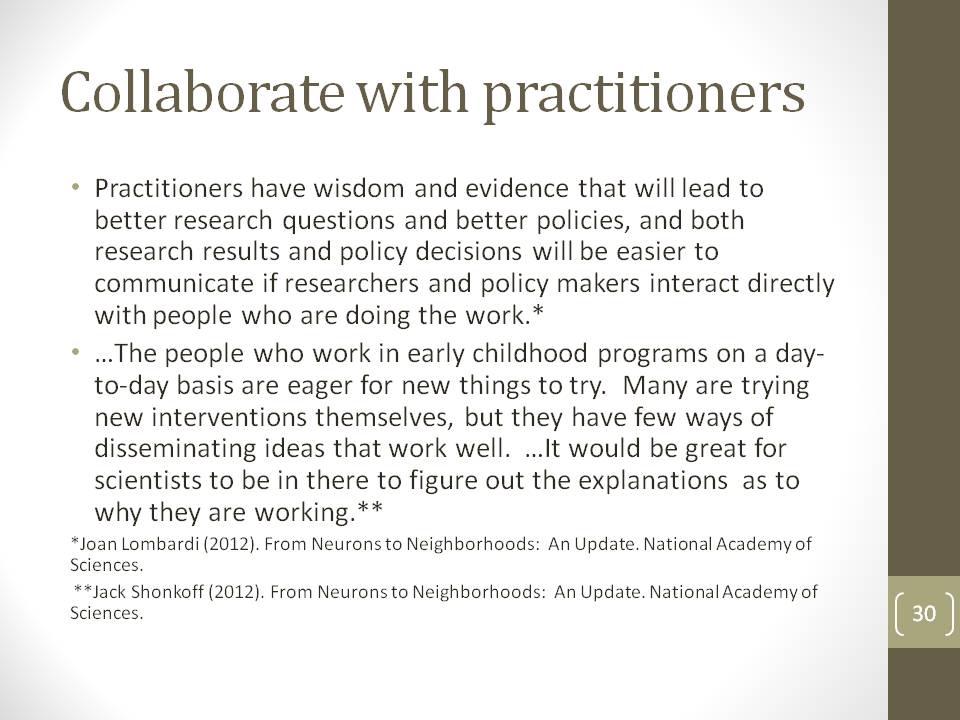 Enlarge
EnlargeAn ongoing process
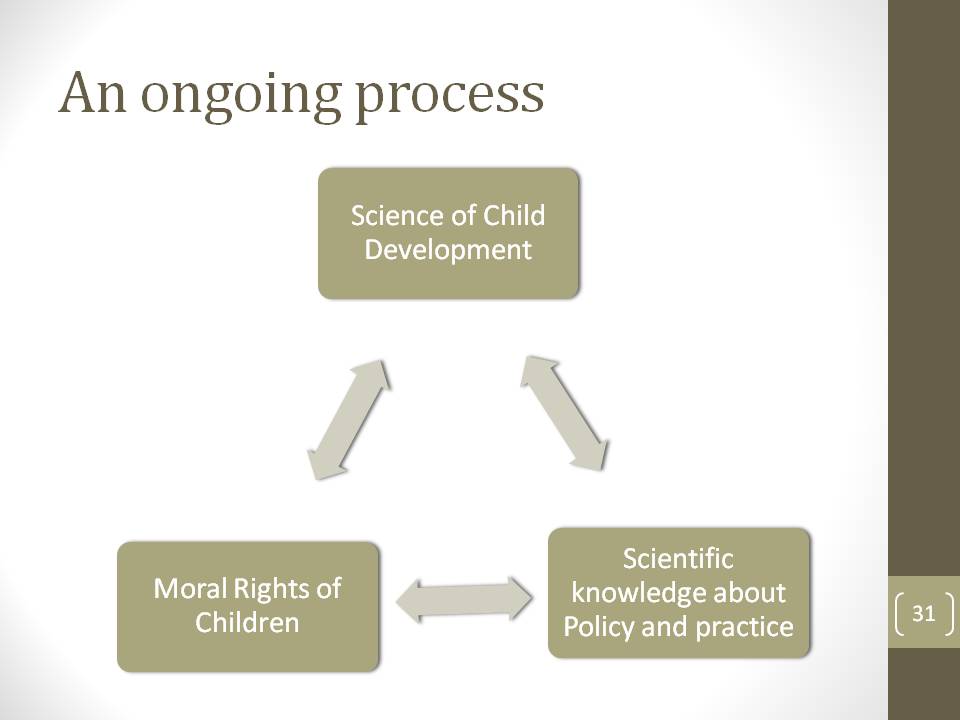 Enlarge
EnlargeIn conclusion, we need an ongoing process in which moral rights are based on scientific evidence about child development and the conditions that promote optimal child well-being. When there is no scientific evidence to guide moral rights, scientists need to be encouraged to work on research to test hypotheses based on moral rights. At the same time cultural values and moral rights need to be continuously evaluated in terms of the degree to which their implementation is linked to or is the cause of better child outcomes.
| | 1 | 2 | 3 | |



 Sarah L. Friedman, Ph.D.
Sarah L. Friedman, Ph.D.










